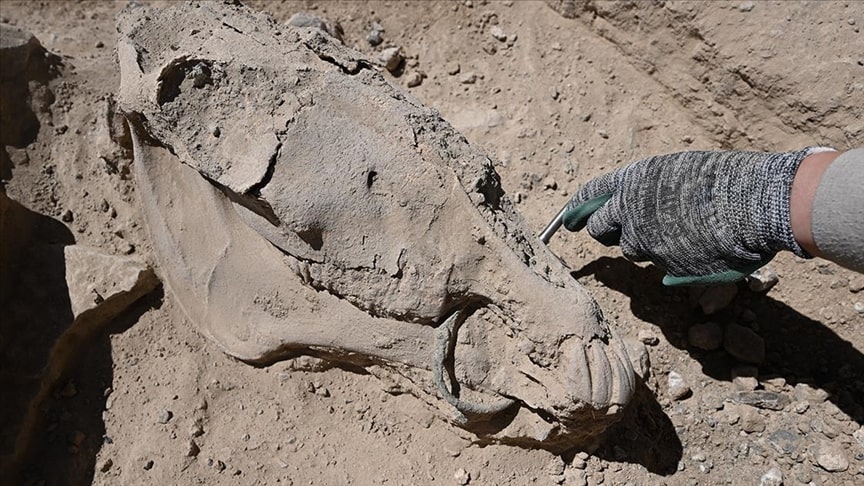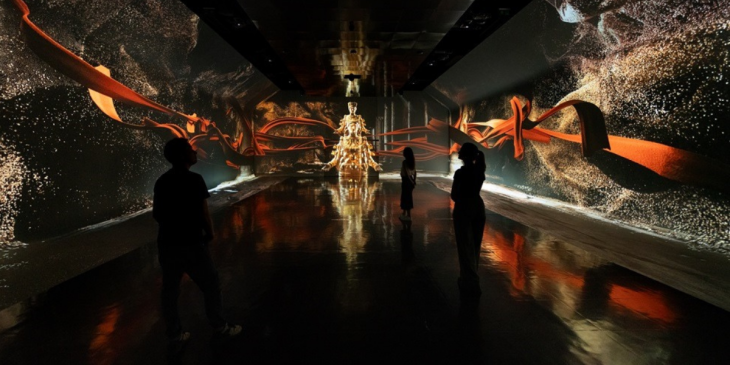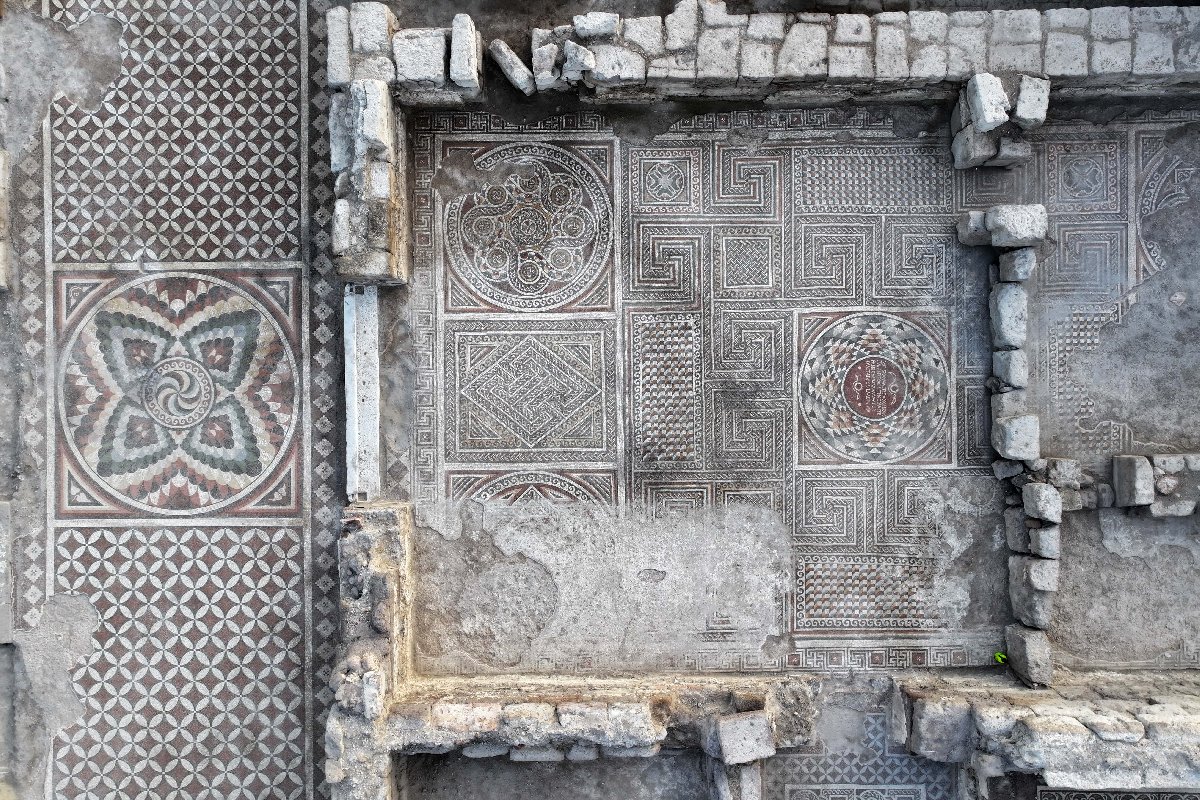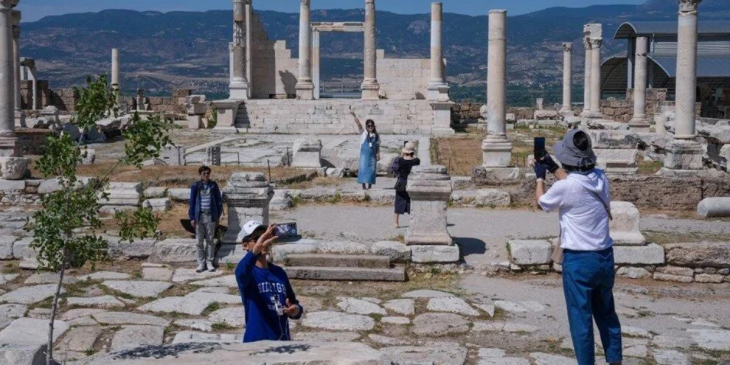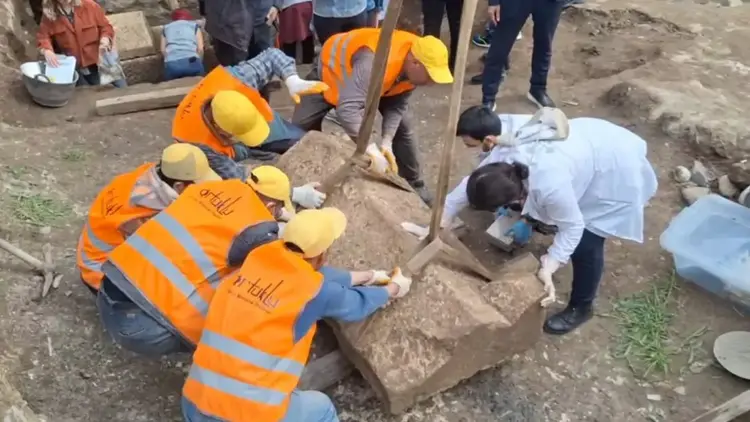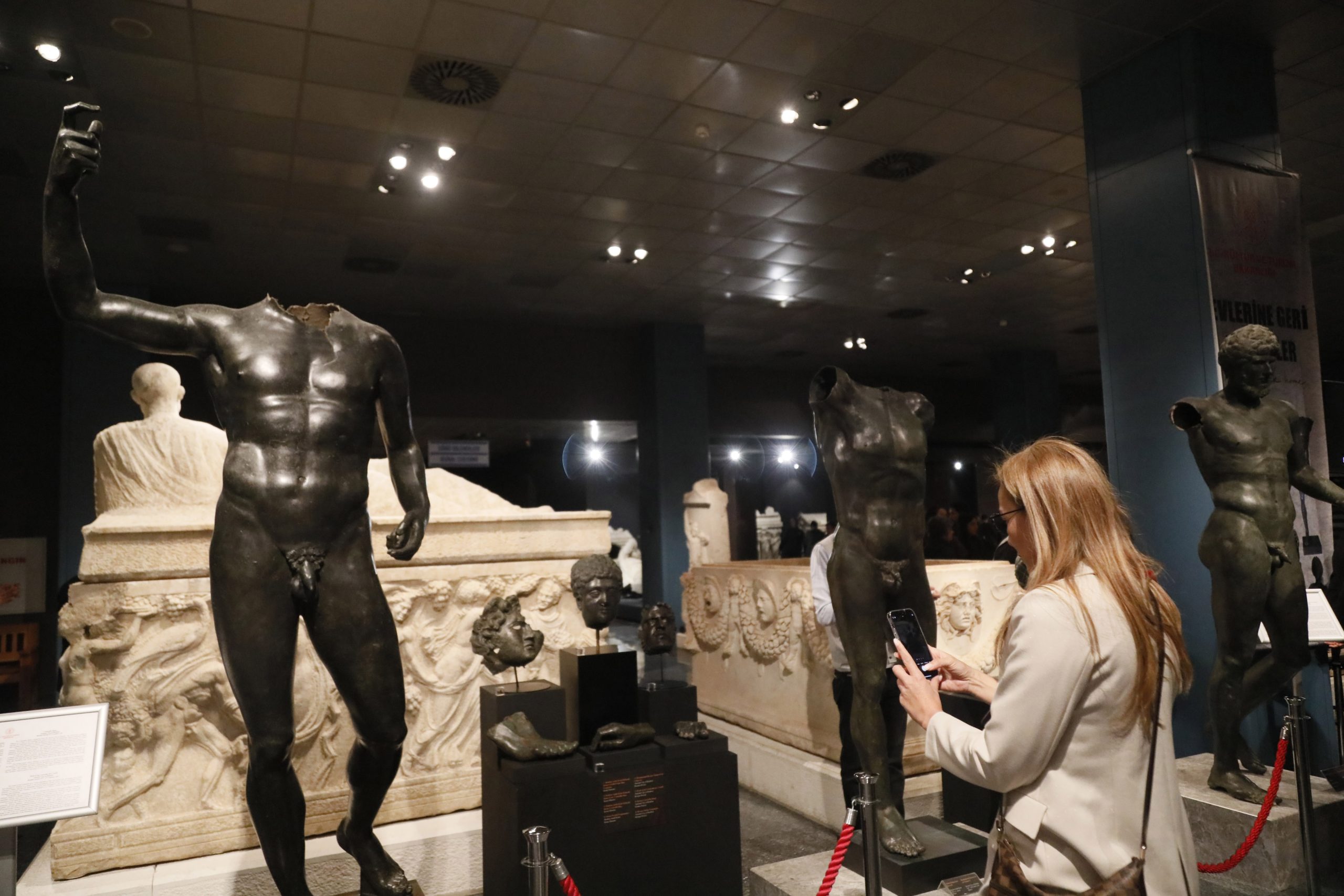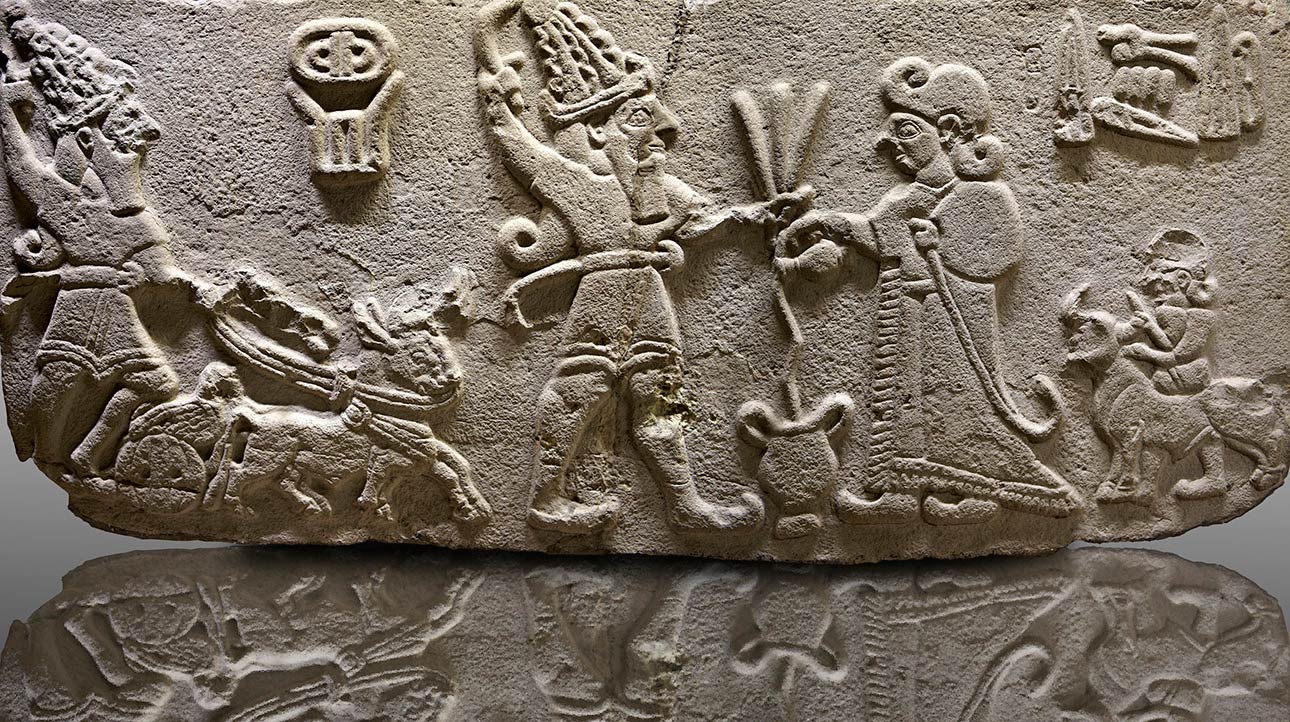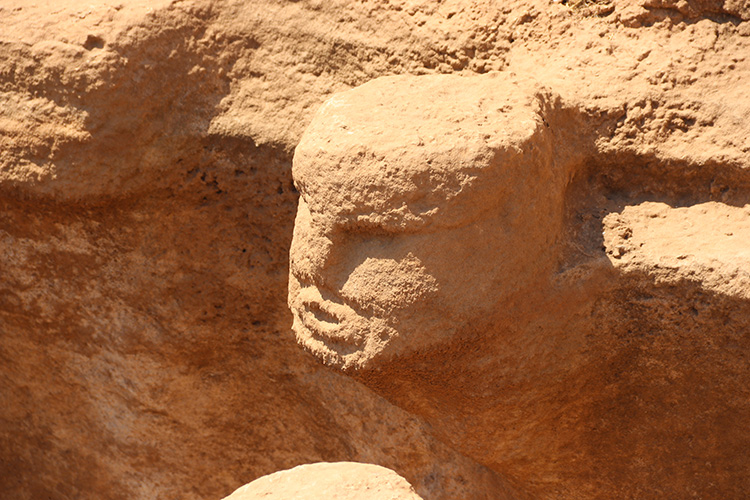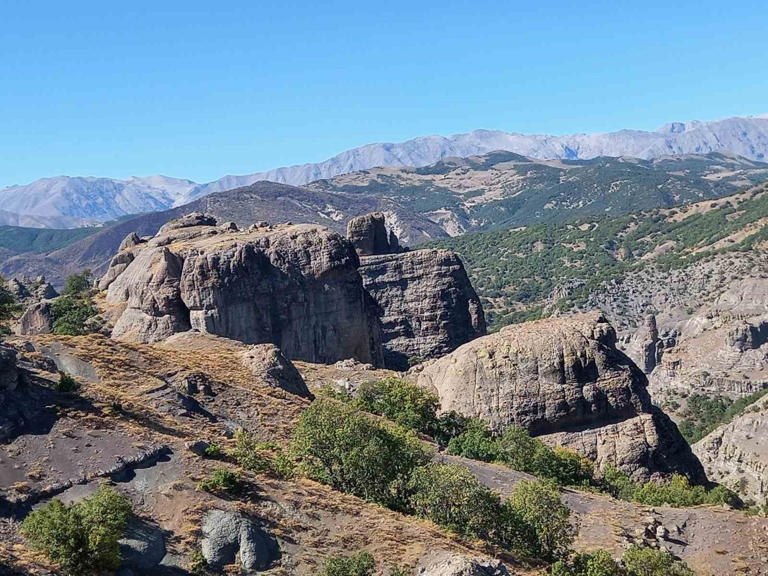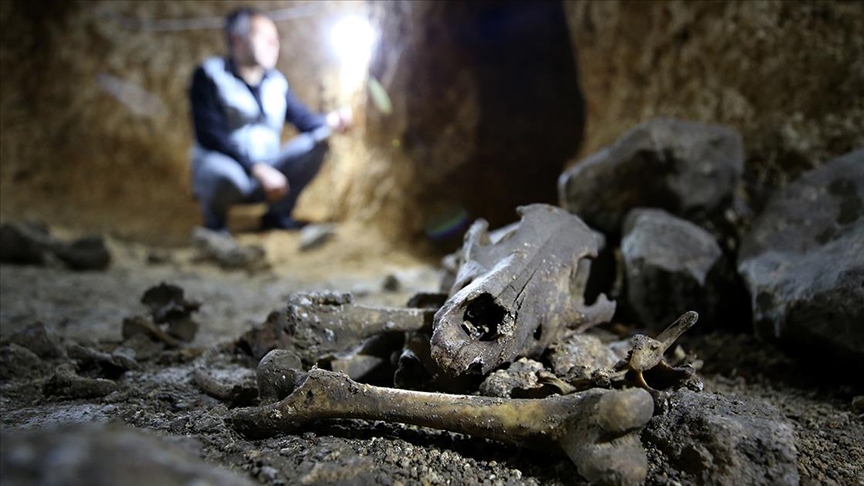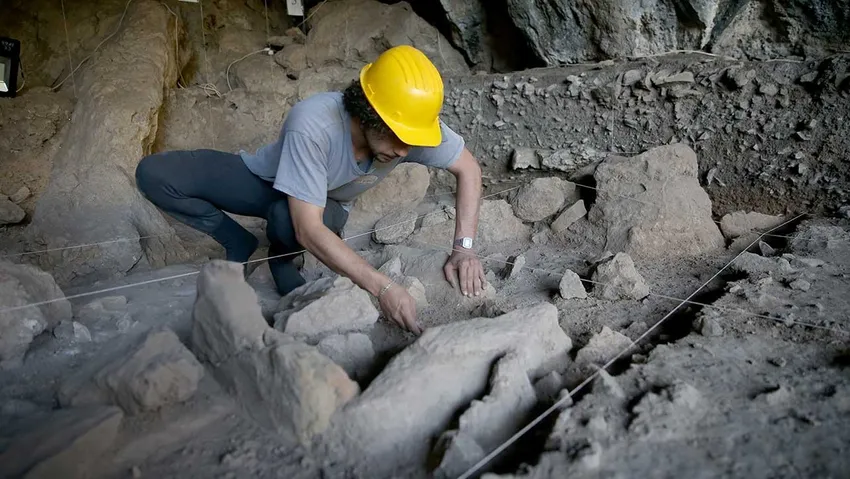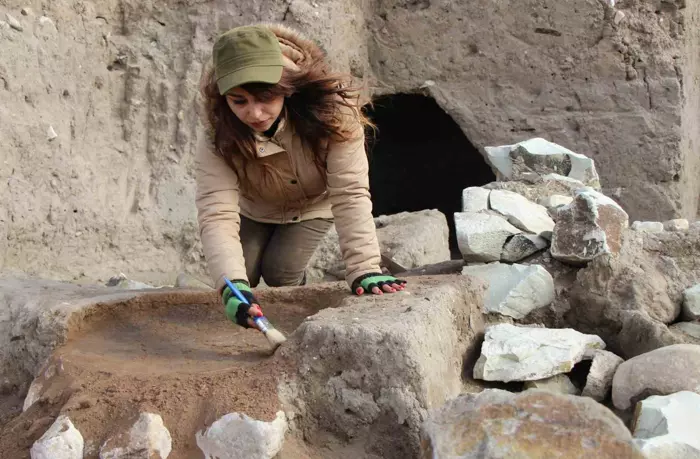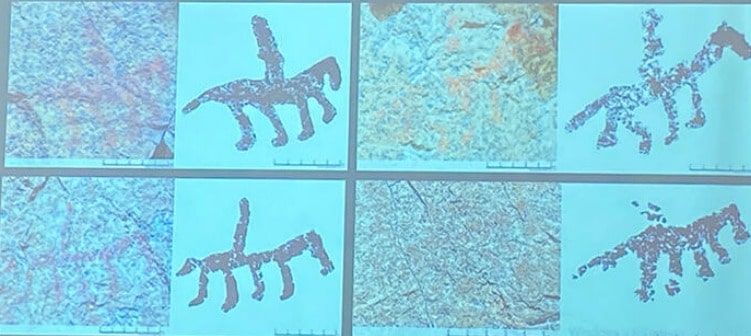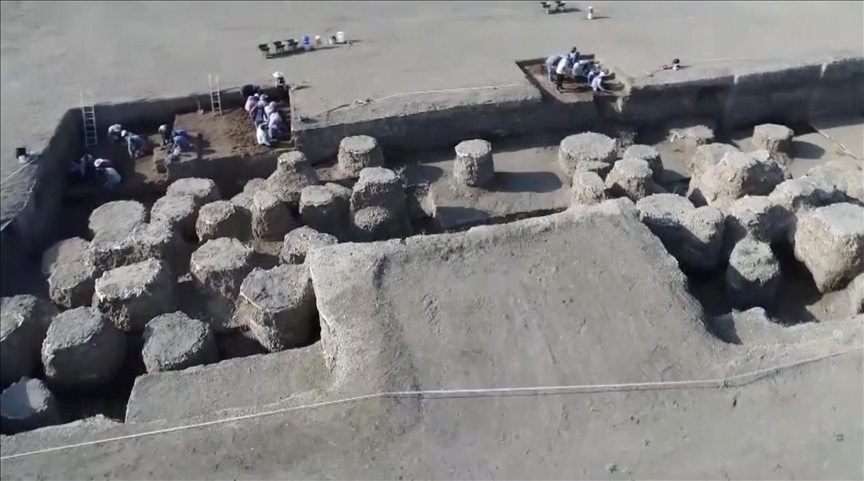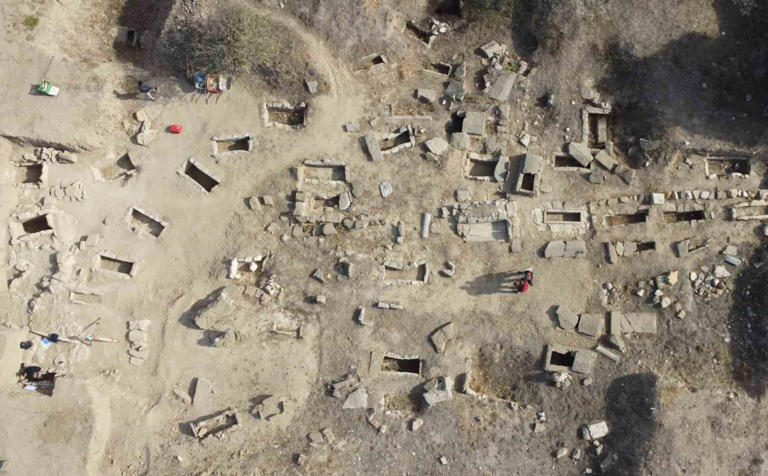A horse skeleton with a bronze curb bit (a metal piece inserted into its mouth to guide the mount) was found in the Çavuştepe castle belonging to the Urartians who ruled in the Eastern Anatolia Region.
Çavuştepe Castle was constructed by Urartian King Sarduri II. in 750 BC.
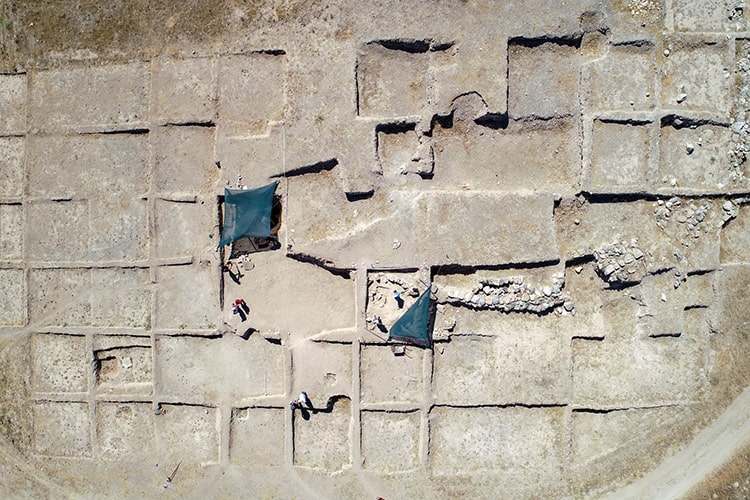
The ongoing excavations at Çavuştepe Castle and the necropolis area north of the castle are being led by Prof. Dr. Rafet Çavuşoğlu, who is the Dean of the Faculty of Arts and Sciences at Van Yüzüncü Yıl University (YYÜ).
For the first time in Urartian history, a curb bit in the form of a ring has come to light.
Last year, at the location where a skeleton believed to belong to the Urartian ruling class was unearthed, this year an at skeleton with a bronze curb bit (a metal piece inserted into the horse’s mouth to control it) was found, as well.
Prof. Dr. Çavuşoğlu, speaking to an AA correspondent, shared the following information about their ongoing restoration and excavation work at the castle and necropolis area:
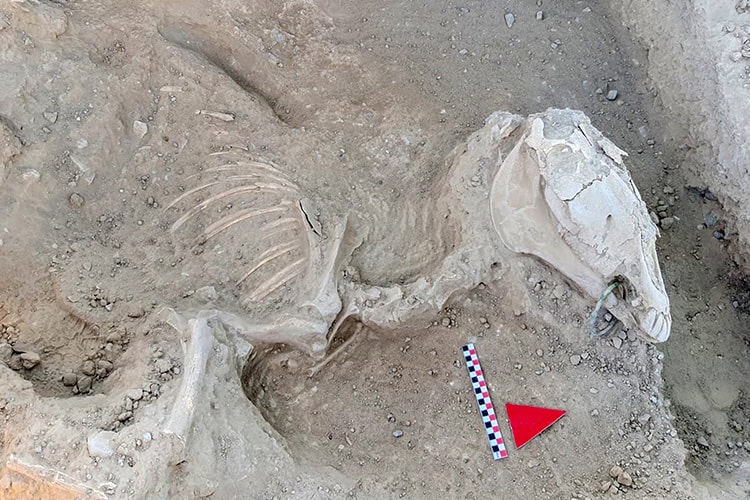
“In our work this year, as in every year, we encountered a new discovery. We found a ring-shaped bit placed in the jaw of a horse, made of bronze. This is of significant importance in Urartian archaeology as it is the first time we have come across such an artifact. Previously, we found similar rings as armlets and bracelets on human skeletons. This new finding is of larger size and is placed in the middle of the horse’s mouth. We believe it was used by its owner to control the animal more effectively. This is the first time we have found a bit in the shape of a ring in Urartian history. It shows us the significant role horses played in Urartian society. These discoveries indicate that this place belonged to a ruling class.”
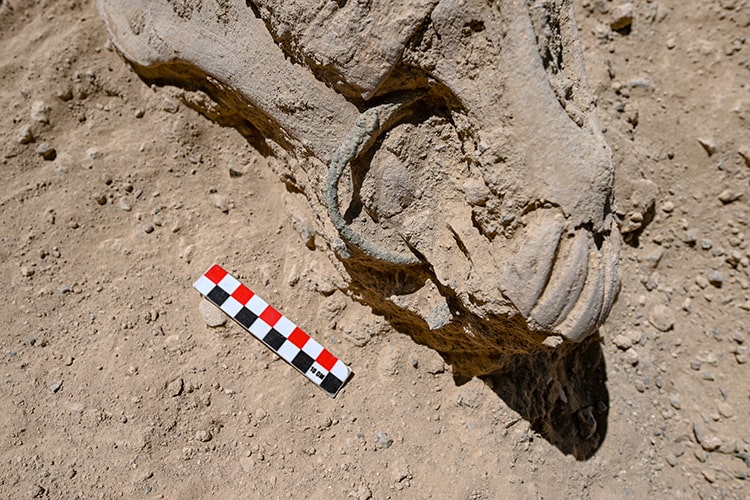
Archaeology Department Faculty Member Assoc. Prof. Dr. Hakan Yılmaz also stated, “The skull and lower jaw of the horse are intact. We determined that it was an adult horse. This discovery is a first in Turkey. We will examine it in the laboratory. With this finding, we are proving that this place belonged to a ruling class. The area is vast, and we are looking forward to more significant discoveries. The findings continue to excite us.”
Cover Photo Özkan Bilgin/AA

